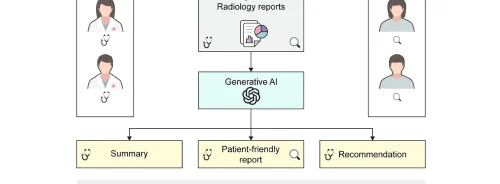Many organisations are adopting AI for revenue cycle management due to workforce shortages and rising costs. However, selecting the right AI solution amidst a crowded market can be daunting. Six crucial criteria for evaluating AI options can be outlined to aid health system leaders in making confident decisions. These include technological capabilities, customer support quality, and other essential factors, aiming to simplify the complex process of choosing an effective AI solution for RCM.
Automation Rate
The automation rate is critical in AI for Revenue Cycle Management (RCM), defining the proportion of tasks that technology can handle without manual intervention. This rate significantly impacts ROI: higher automation rates mean more tasks can be handled at a lower cost compared to manual efforts. For instance, in medical coding, a 90% automation rate could reduce costs by 45%, as opposed to a 60% rate reducing costs by 30%. Many organisations prioritise AI vendors based on these rates; for example, ApolloMD achieves a 90% automation rate, demonstrating substantial cost savings and allowing resources to focus on higher-value RCM tasks like denial management. Thus, automation rate is pivotal in determining AI's effectiveness and financial impact in RCM.
Accuracy
Accuracy is a critical metric in AI for Revenue Cycle Management (RCM), measuring how effectively technology performs tasks compared to manual or existing technological solutions. Errors in RCM can lead to substantial financial and compliance consequences, such as the $20 billion spent annually on fighting denials by hospitals and health systems. When evaluating AI solutions, organisations must establish benchmarks for accuracy, comparing current performance levels to national standards or industry norms. This approach ensures accurate assessments of AI vendors and enables informed decision-making by health system leaders.
Compatibility and Integration
Seamless integration with electronic health records (EHR) systems is crucial for provider interoperability. Evaluating potential AI vendors should include probing their experience and expertise with different EHRs. Peer reference calls with organisations already using a vendor can provide insights into integration experiences and compatibility levels. Additionally, certification from EHR partnership programs, like those offered by Epic and Cerner, indicates a vendor's adherence to security and functionality standards, reducing implementation risks for health systems. These steps ensure effective EHR integration when selecting AI solutions for healthcare providers.
Configurability and Adaptability
AI vendors in healthcare must accommodate diverse rules, guidelines, and administrative workflows unique to each health system. While robust out-of-the-box features are beneficial, a high level of configurability or customisation is crucial for optimal performance and alignment with specific system needs. For instance, in medical coding, standardised code sets from organisations like WHO, CMS, and AMA are common, but each health system adds its own coding requirements based on workflows and payer contracts. Effective autonomous coding solutions must handle these specific needs to ensure accurate automation. Additionally, the ability to promptly integrate regulatory updates, such as CMS-HCC changes, is vital for maintaining high performance in AI technologies deployed in healthcare settings.
Scalability
Health systems frequently face the need to expand operations due to increased patient volumes, new services, or additional departments. However, many AI technologies are limited to specific tasks or specialities, hindering their scalability as needs evolve. Effective AI solutions can accommodate broader scopes of work without sacrificing performance or requiring extensive system changes. To ensure a technology meets both current and future needs, organisations should assess its current capabilities and future roadmap, evaluating how well upcoming features align with evolving organisational requirements.
Vendor Support
Organisations should evaluate the quality of a solution’s customer support by examining team qualifications and behaviours. For instance, vendors with physicians involved in implementation bridge administrative and clinical needs, enhancing alignment with healthcare providers’ practical requirements and building trust among clinical leaders. A responsive support team minimises downtime by swiftly addressing inquiries and resolving issues, providing regular updates on ticket statuses and expansion plans for transparency. Proactively sharing performance metrics ensures project success. Ultimately, the vendor’s support team significantly impacts daily operations and project outcomes, underscoring the importance of vetting their qualifications and behaviours during vendor selection.
Health systems are urged to embrace AI now. By rigorously evaluating automation rate, accuracy, compatibility, configurability, scalability, and vendor support, leaders can choose an AI solution that addresses current needs and prepares for future challenges. AI promises a more stable and efficient Revenue Cycle Management (RCM), allowing healthcare staff to focus on delivering exceptional patient care.
Source: HITT
Image Credit: iStock






